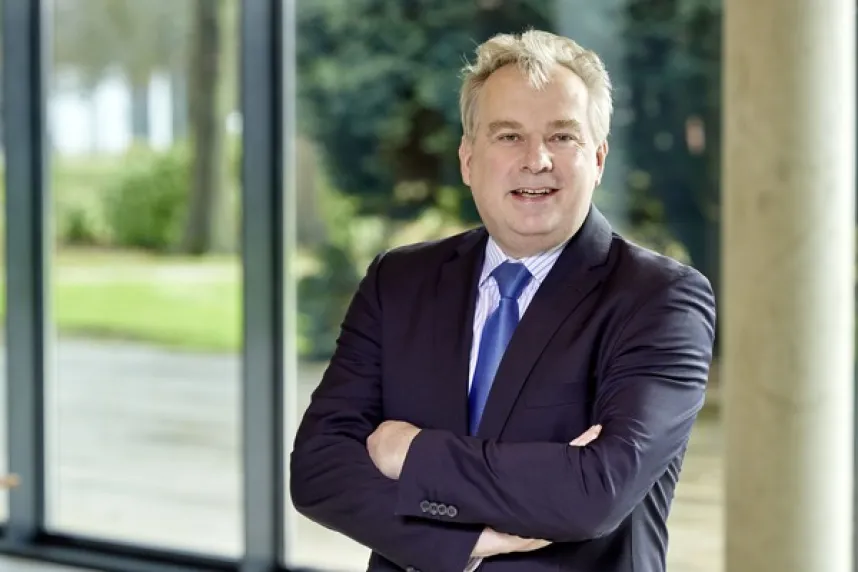Drugging undruggable diseases – Constructor University's Werner Nau awarded prestigious ERC Synergy Grant to revolutionize drug delivery
Constructor University today announced that a team with Werner Nau, Professor of Chemistry, has been awarded a €10 million Synergy Grant by the European Research Council (ERC) — one of Europe’s most prestigious research funding bodies supporting frontier science and breakthrough innovation. The project aims to overcome one of the biggest challenges in medicine: efficiently delivering modern biotherapeutics, such as peptides and proteins, into cells — a key hurdle in developing new treatments for diseases like cancer.
Building on a groundbreaking discovery from 2022, when the partners identified a new class of membrane transporters known as boron clusters, the new ERC-funded project will explore the application of this innovative molecular technology to real-world diseases, including previously "undruggable" cancer types. The special chemical feature of boron clusters is that they are "superchaotropic," a unique molecular property which the Nau group in Bremen is renowned for studying. In contrast to conventional medicines, this property allows them to penetrate through almost all barriers, including cellular membranes. The boron clusters are therefore able to transport therapeutic molecules, such as certain peptides and proteins, directly to their targets inside cells, which presents a disruptive strategy in drug delivery.
“This project allows us to take the next decisive step: from a fundamental chemical discovery to a potential biomedical breakthrough,” said Werner Nau, Professor of Chemistry at Constructor University. “It is a privilege to work in such an international team of leading scientists and to see our vision recognized at the highest level by the European Research Council.”
The ERC grant supports a European collaboration composed of Werner Nau, Constructor University, Germany, Paola Luciani, University of Bern, Switzerland, Oliver Hantschel, Philipps University Marburg, Germany, and Javier Montenegro, University of Santiago de Compostela, Spain. Together, they form the “Synergy Team,” combining expertise in chemistry, biochemistry, pharmaceutical sciences, and artificial intelligence. The international makeup of this year's winner was also a point of emphasis for Prof. Maria Leptin, President of the European Research Council. "Collaboration is at the heart of the ERC Synergy Grants. In our latest round, teams of researchers will join forces to address the most complex scientific problems together. This time, they are more international than ever."
The project has been awarded a total funding volume of €10 million, €2.5 million of which will go to each university. The ERC grant marks the largest award ever received by a single researcher at Constructor University, highlighting the institution’s increasing reputation for excellence in influential scientific discoveries. The Synergy Grant is one of Europe´s most competitive and largest funding instruments, with a success rate below 10 percent. It supports pioneering research teams that tackle ambitious scientific challenges requiring collaborative excellence across disciplines. The funding will be used to drive this ambitious long-term research project over six years.
At Constructor University, the grant will finance research within Professor Nau’s workgroup, ranging from Dr. Andrea Barba-Bon as junior group leader to Prof. Detlef Gabel as senior expert. The interdisciplinary project will also strengthen collaborations across the university’s chemistry, biochemistry, biophysics, biotechnology, and cell biology departments. The team in Bremen will focus on the synthesis of boron clusters and physical measurements of their interactions with cellular membrane models, and the monitoring of the actual transport processes.
“This ERC Synergy Grant is a milestone for Constructor University,” said Turgut Tülü, Chancellor of Constructor University. “It demonstrates that our faculty competes at the highest international level and reinforces Bremen’s position on the global map of scientific excellence.” The project is set to begin in the spring of 2026.
About the ERC:
The ERC, set up by the European Union in 2007, is the premier European funding organisation for excellent frontier research. It funds creative researchers of any nationality and age, to run projects based across Europe. The ERC offers four core grant schemes: Starting Grants, Consolidator Grants, Advanced Grants and Synergy Grants. With its additional Proof of Concept Grant scheme, the ERC helps grantees to bridge the gap between their pioneering research and early phases of its commercialisation. The ERC is led by an independent governing body, the Scientific Council. Since November 2021, Maria Leptin is the President of the ERC. The overall ERC budget from 2021 to 2027 is more than €16 billion, as part of the Horizon Europe programme, under the responsibility of European Commissioner for Startups, Research and Innovation, Ekaterina Zaharieva.
